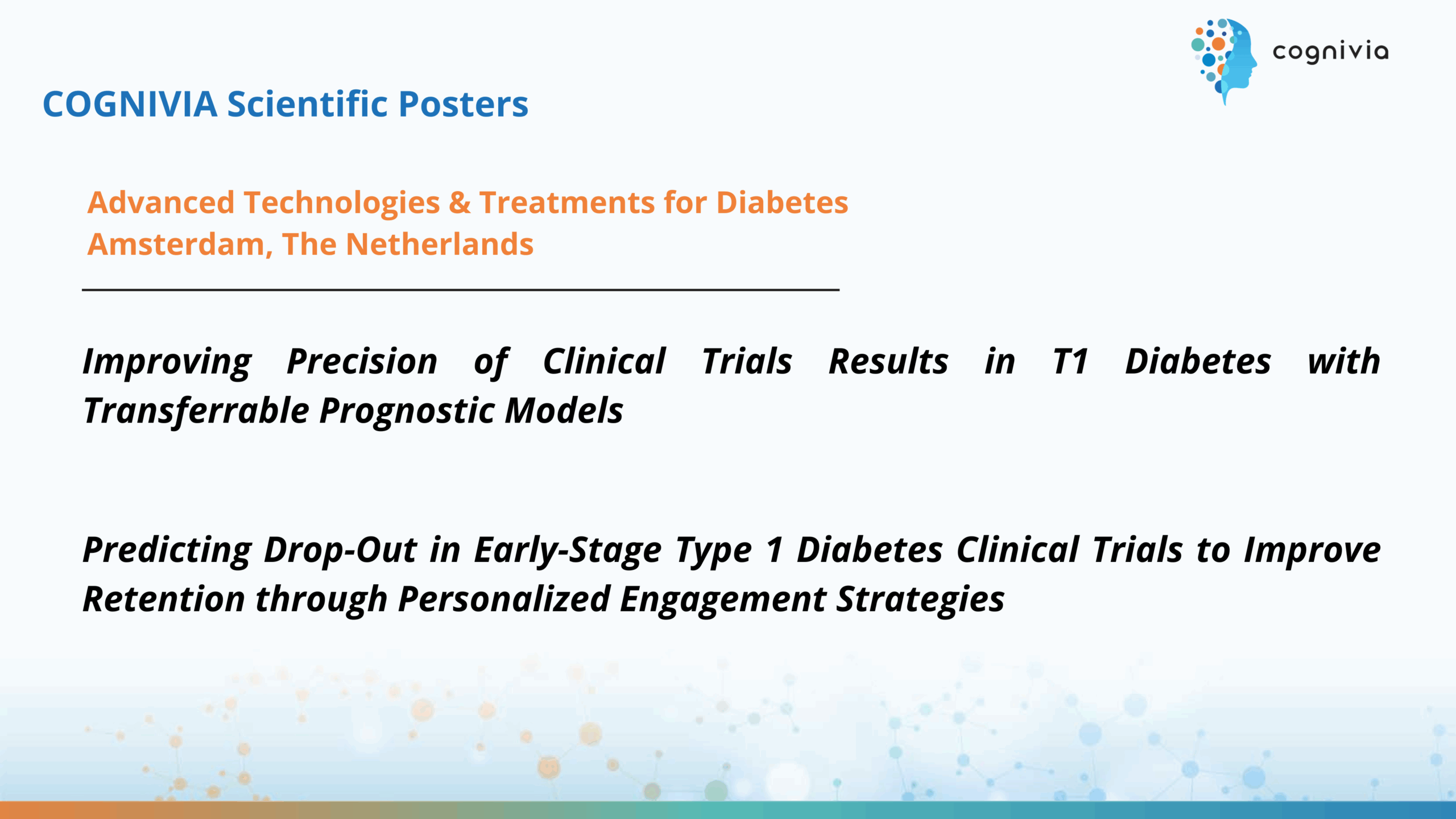At the recent 2025 Advanced Technologies & Treatments for Diabetes congress in Amsterdam, Cognivia presented two new scientific posters demonstrating the applicability and scientific robustness of its data-driven tools, Placebell and Compl-AI, in Type 1 Diabetes (T1D) clinical trials. These results mark a significant step forward in addressing two persistent challenges: data variability and patient drop-out, both of which can compromise statistical power and increase trial failure risk.
The first poster entitled “Improving Precision of Clinical Trials Results in T1 Diabetes with Transferrable Prognostic Models” evaluated the Placebell model, originally developed to address placebo effects in conditions like chronic pain and Parkinson’s disease, in T1D trials. In a multicenter, randomized, double-blind, placebo-controlled study in subjects with T1D within 6 weeks of diagnosis (defined as day of first insulin injection) at screening and within a maximum of 12 weeks from diagnosis at randomization, by leveraging machine learning to integrate prognostic variables, Placebell improved statistical precision—up to 52.2% for C-peptide responses and 20.9% for other key endpoints. The model effectively reduced variability, equivalent to increasing the sample size by up to 44 patients (+52%), reinforcing its role in optimizing clinical trial analyses. These findings confirm the model’s transferability, underscoring its potential to reduce variability and enhance trial robustness across multiple indications.
The second poster entitled “Predicting Drop-out in Early-Stage Type 1 Diabetes Clinical Trials to Improve Retention Through Personalized Engagement Strategies” focused on Compl-AI, which predicts patient drop-out risk at baseline. Drop-out remains a critical factor impacting trial timelines and costs. Using machine learning, the model identified at-risk patients with 93% sensitivity and an AUC of 0.80, enabling targeted retention interventions. These results position Compl-AI as a strategic tool for proactive patient engagement, ultimately improving trial retention rates and reducing delays and costs.
Both tools offer evidence-based solutions to longstanding clinical trial challenges, demonstrating the power of data-driven approaches offering a promising path forward for more reliable and efficient clinical trials.Interested in learning more about the data contact us

